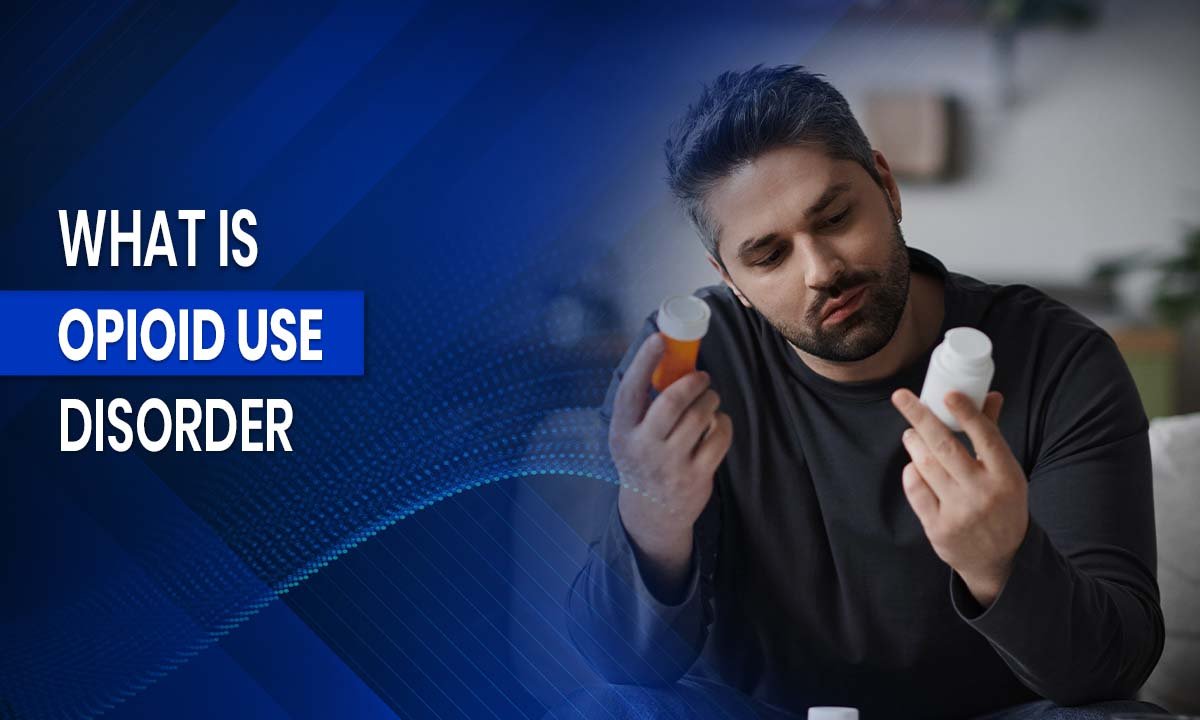
What is Opioid Use Disorder?
Opioid Use Disorder (OUD) is a chronic illness that affects millions globally. It involves physical addiction to opioid drugs, leading to uncontrollable urges to use them despite harmful consequences. The condition is not only about addiction but also involves opioid dependence, withdrawal symptoms, and a high risk of overdose.
Is Opioid Addiction a Disease?
Yes, opioid addiction is recognized as a chronic disease, much like diabetes or hypertension. It alters the brain’s chemistry, making it difficult for individuals to quit without professional help.
How Does Opioid Addiction Develop?
Opioid addiction typically starts with pain medication use for relief. Over time, tolerance builds, requiring higher doses, leading to dependency and ultimately OUD. Common opioid medications include:
- Morphine
- Oxycodone
- Hydrocodone
- Fentanyl
- Heroin (one of the deadliest forms of opioid addiction)
Symptoms of Opioid Use Disorder
Key Symptoms Include:
- Strong cravings for opioids
- Increased tolerance, needing higher doses
- Physical addiction with withdrawal symptoms
- Inability to control usage
- Risk of overdose
- Neglecting responsibilities
- Severe mood swings, anxiety, or depression
Causes of Opioid Addiction
The causes of opioid addiction are multifactorial, and they vary from person to person. Some common factors include:
- Chronic pain requiring opioid medication
- Genetic predisposition to addiction
- Psychological factors like depression or anxiety
- Environmental influences, such as peer pressure or trauma
- Long-term opioid use for medical or recreational reasons
Who's at Greater Risk for Opioid Use Disorder?
Certain individuals are more prone to developing opioid addiction, including:
- Those with a history of substance abuse
- People suffering from chronic pain
- Those with a family history of addiction
- People with mental health disorders
- Individuals who misuse opioid medications or use them without a prescription
How is Opioid Use Disorder Diagnosed?
Diagnosis involves:
- Medical history evaluation
- Physical and psychological assessments
- Urine or blood tests for opioid presence
- Screening for withdrawal symptoms
Effective Treatments for Opioid Use Disorder
Treatment options include:
- Behavioral therapy to modify addictive behaviors
- Medication-assisted treatment (MAT) using methadone or buprenorphine
- Inpatient recovery programs in specialized rehab centers
- Counseling and mental health support to address psychological causes of addiction
What Happens During Opioid Detox?
Opioid detox is the first step in recovery, involving:
- Supervised withdrawal to manage symptoms
- Medications to reduce withdrawal effects
- Monitoring for complications
- Transitioning into long-term treatment
Outpatient vs. Residential Treatment: Which is Right for You?
- Outpatient Treatment: Ideal for mild addiction, where individuals can manage recovery while staying at home.
- Residential Treatment: Best for severe addiction, providing 24/7 care and support in a rehab center.
The Role of Counseling in Opioid Addiction Recovery
Counseling is critical in addressing underlying addiction causes, teaching coping strategies, and preventing relapse. It includes:
- Cognitive-behavioral therapy (CBT)
- Group therapy
- Family counseling
How Medications Help Treat Opioid Addiction
Medications like methadone, buprenorphine, and naltrexone help reduce cravings and ease withdrawal symptoms. Medication-assisted treatment is combined with therapy for optimal recovery.
Can Opioid Addiction Treatment Be Successful?
Yes, with the right treatment and support, opioid addiction can be effectively managed. Confidential Rehab in Gurgaon has helped numerous individuals regain control of their lives through specialized treatment programs.
Patient Experiences
- Amit Sharma: I struggled with opioid addiction for years, but Confidential Rehab changed my life! Their team gave me the support I needed.
- Riya Gupta: The detox was tough, but their counseling sessions helped me stay strong. Now, I’m free from opioid dependence.
- Rahul Verma: I was hopeless after my opioid overdose, but the expert doctors at Confidential Rehab guided me back to health.
- Neha Singh: This place gave me a second chance at life. If you’re suffering, don’t wait. Get help now.
When opioid addiction impacts you or a loved one, personalized care is essential for recovery. At Confidential Rehab, we offer individualized care plans that support a wide range of addictions, including:
- Gambling Addiction Treatment Centre in Gurgaon
- Caffeine Addiction Treatment Centre in Gurgaon
- Cannabis Addiction Treatment Centre in Gurgaon
- Stimulant Addiction Treatment Centre in Gurgaon





